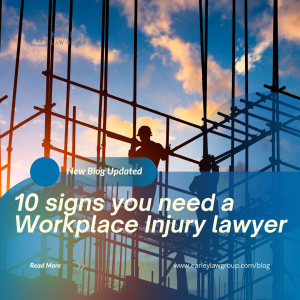
No one ever plans to be in an accident. Suddenly you need to go to medical professionals if you were injured from the accident. You may even be missing time from work, and losing wages as a result. If you have been involved in any type of accident that has produced personal injuries, you may […]
 Call Earley Before It’s Too Late!
Call Earley Before It’s Too Late!




